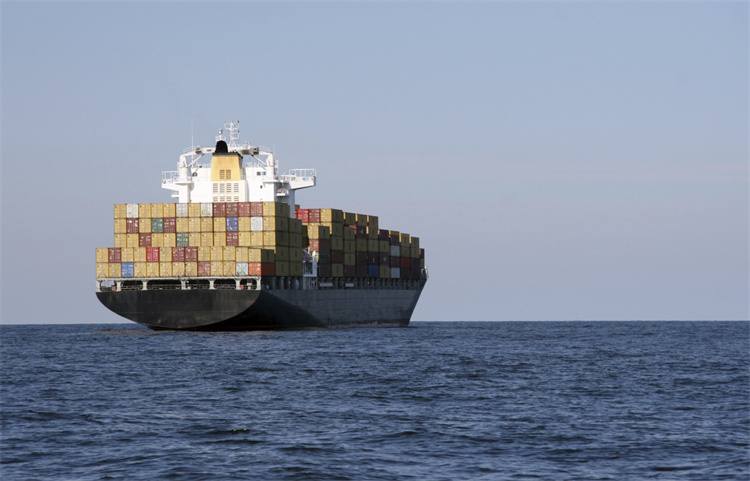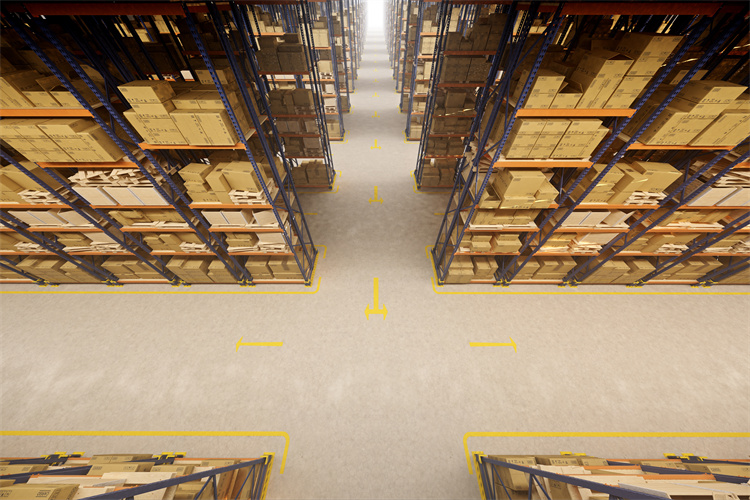Effective Cold Chain Logistics: Tips for Food and Pharma Success

Cold chain logistics plays a crucial role in the food and pharmaceutical industries. These sectors rely on precise temperature control to preserve product quality and safety. Effective cold chain logistics ensures that perishable goods maintain their integrity from production to consumption. The process involves maintaining specific temperature ranges throughout transportation and storage. Any deviation can compromise product quality, leading to significant losses. Optimizing cold chain processes is essential for ensuring product integrity and meeting industry standards. This optimization helps prevent spoilage and maintains the efficacy of pharmaceuticals, ultimately protecting consumer health.
Understanding Cold Chain Logistics
Definition and Importance
What is Cold Chain Logistics?
Cold chain logistics involves the transportation and storage of temperature-sensitive products. This process requires maintaining specific temperature ranges to ensure product quality. Cold chain logistics plays a vital role in preserving the integrity of perishable goods. This includes food and pharmaceutical products. The logistics process uses specialized equipment and facilities to control temperatures.
Why is it crucial for food and pharma?
Food and pharmaceutical industries rely heavily on cold chain logistics. Temperature control prevents spoilage and contamination. This ensures that food products remain safe for consumption. Pharmaceuticals require precise temperature management to maintain efficacy. Any deviation from required temperatures can compromise product safety. Cold chain logistics helps protect consumer health by ensuring product integrity.
Key Components of Cold Chain Logistics
Temperature Control
Temperature control serves as the cornerstone of cold chain logistics. This involves using refrigeration systems to maintain specific temperature ranges. Real-time monitoring systems track temperature fluctuations. These systems alert operators to any deviations. Immediate corrective actions prevent product spoilage. Advanced technologies, such as IoT and sensors, enhance temperature management.
Packaging Solutions
Packaging solutions play a critical role in cold chain logistics. Strong packaging materials provide insulation. This protects products from external temperature changes. Insulated containers and thermal blankets are commonly used. Packaging must withstand various environmental conditions during transit. Proper packaging ensures that products remain within required temperature ranges.
Transportation Methods
Transportation methods in cold chain logistics require careful planning. Refrigerated trucks, ships, and aircraft transport temperature-sensitive goods. Each mode of transport offers unique advantages. Trucks provide flexibility for short distances. Ships handle large volumes over long distances. Aircraft offer speed for urgent deliveries. Jusda integrates AI and digital advancements to optimize transportation routes. This enhances supply chain resilience and efficiency.
Challenges in Cold Chain Logistics

Temperature Fluctuations
Causes of Temperature Variations
Temperature fluctuations pose significant challenges in cold chain logistics. Several factors contribute to these variations. Equipment failures often lead to unexpected temperature changes. Power outages disrupt refrigeration systems. Human errors during handling and transportation also cause fluctuations. External environmental conditions, such as extreme weather, impact temperature stability. Each factor requires careful management to prevent product spoilage.
Impact on Product Quality
Temperature variations severely affect product quality. Food products become susceptible to spoilage. Pharmaceuticals lose efficacy when exposed to incorrect temperatures. Such deviations compromise consumer safety. Businesses face financial losses due to damaged goods. Maintaining consistent temperatures ensures product integrity. Effective monitoring systems help detect and address fluctuations promptly.
Regulatory Compliance
Understanding Industry Regulations
Regulatory compliance is crucial in cold chain logistics. The food and pharmaceutical industries adhere to strict guidelines. These regulations ensure product safety and quality. Agencies like the FDA and WHO set standards for temperature control. Businesses must understand these requirements. Compliance involves regular audits and documentation. Adhering to regulations builds consumer trust and prevents legal issues.
Ensuring Compliance in Operations
Ensuring compliance requires robust operational strategies. Training programs educate staff on regulatory standards. Employees learn best practices for temperature management. Advanced technologies aid in maintaining compliance. Real-time monitoring systems track temperature data. Automated alerts notify operators of deviations. Regular inspections verify adherence to guidelines. Businesses prioritize compliance to protect consumer health.
Best Practices for Effective Cold Chain Logistics
Implementing Advanced Technologies
Use of IoT and Sensors
The Internet of Things (IoT) and sensors revolutionize cold chain logistics. IoT devices collect real-time data on temperature and humidity. Sensors provide precise measurements throughout the supply chain. This technology enhances visibility into every stage of transportation. Operators receive instant alerts when conditions deviate from standards. Immediate corrective actions prevent potential spoilage or damage. Businesses gain valuable insights through data analytics. These insights optimize routes and improve efficiency. The integration of IoT ensures consistent product quality.
Real-time Monitoring Systems
Real-time monitoring systems play a vital role in cold chain logistics. These systems track temperature changes during transit. Operators access live data through centralized platforms. Continuous monitoring ensures adherence to required temperature ranges. Automated alerts notify operators of any anomalies. Swift responses mitigate risks associated with temperature fluctuations. Businesses maintain product integrity by using these systems. Real-time monitoring fosters accountability and transparency. Customers gain confidence in the reliability of the supply chain.
Training and Education
Importance of Staff Training
Staff training is essential for effective cold chain logistics. Employees learn best practices for handling temperature-sensitive products. Training programs cover equipment operation and safety protocols. Knowledgeable staff minimize risks associated with human error. Proper training ensures compliance with industry regulations. Businesses invest in training to enhance operational efficiency. Well-trained employees contribute to maintaining product quality. Regular assessments reinforce skills and knowledge. Training empowers staff to handle unexpected challenges.
Continuous Learning and Development
Continuous learning and development support long-term success in cold chain logistics. Industry standards evolve, requiring ongoing education. Employees stay updated on new technologies and practices. Workshops and seminars offer opportunities for skill enhancement. Businesses encourage a culture of continuous improvement. Development programs foster innovation and adaptability. Employees gain confidence in their abilities through learning. Continuous education strengthens the overall supply chain. Businesses achieve excellence by prioritizing development initiatives.
JUSDA's Role in Cold Chain Logistics
Innovative Solutions by JUSDA
JusLink Platform for Real-time Collaboration
JUSDA provides a cutting-edge solution through the JusLink Platform. This platform enables real-time collaboration across the supply chain. Suppliers, manufacturers, and customers connect seamlessly. The platform ensures efficient resource utilization. Businesses achieve precise decision-making capabilities. JusLink integrates various stakeholders into a unified system. This integration enhances transparency and communication. Companies experience reduced delays and improved coordination. The platform supports proactive management of supply chain activities. Businesses gain a competitive edge through enhanced collaboration.
Leveraging Big Data and IoT
JUSDA leverages Big Data and IoT technologies to revolutionize cold chain logistics. These technologies provide comprehensive insights into supply chain operations. Real-time data collection enhances visibility at every stage. Businesses monitor temperature and humidity with precision. IoT devices ensure accurate tracking of environmental conditions. Operators receive instant alerts for any deviations. This proactive approach minimizes risks of spoilage or damage. Big Data analytics optimize transportation routes and inventory management. Businesses improve efficiency and reduce operational costs. JUSDA's innovative use of technology strengthens supply chain resilience.
Case Studies and Examples

Successful Cold Chain Implementation in Food Industry
Case Study 1: JUSDA's Approach in Food Logistics
JUSDA's Approach in Food Logistics showcases a remarkable transformation in cold chain logistics. A leading food company faced challenges in maintaining temperature consistency during transportation. JUSDA introduced advanced IoT sensors for real-time temperature monitoring. These sensors provided accurate data throughout the supply chain. The company achieved significant improvements in product quality and safety. The integration of AI algorithms optimized transportation routes. This optimization reduced delivery times and operational costs.
Key Outcomes:
Enhanced product quality and safety
Reduced delivery times
Lower operational costs
Lessons Learned
The case study highlights the importance of real-time data analytics. Accurate temperature monitoring ensures product integrity. AI-driven route optimization enhances efficiency. Companies must invest in advanced technologies for successful cold chain logistics. Continuous improvement leads to better customer satisfaction.
Successful Cold Chain Implementation in Pharma Industry
Case Study 2: JUSDA's Strategy in Pharma Logistics
JUSDA's Strategy in Pharma Logistics demonstrates effective cold chain management. A pharmaceutical company struggled with regulatory compliance and temperature control. JUSDA implemented a comprehensive monitoring system. The system tracked temperature variations in real time. Big Data analytics provided insights into supply chain operations. The company achieved compliance with industry standards. Operational efficiency improved significantly.
Key Outcomes:
Achieved regulatory compliance
Improved operational efficiency
Enhanced supply chain visibility
Lessons Learned
The case study underscores the value of strategic partnerships. Collaboration with technology providers strengthens supply chain resilience. Real-time monitoring systems ensure compliance and product safety. Companies should leverage Big Data for informed decision-making. Investing in technology integration enhances customer loyalty.

SMART JUSLINK
Supply Chain Management Solution
Effective cold chain logistics remains essential for maintaining product integrity in the food and pharmaceutical sectors. Businesses must adopt best practices to ensure temperature-sensitive products reach consumers safely. Advanced technologies like IoT and real-time monitoring systems enhance supply chain efficiency. Continuous improvement and innovation drive operational excellence. Companies should invest in training and development to equip staff with necessary skills. Jusda's expertise in supply chain management offers tailored solutions for businesses seeking resilience. By embracing these strategies, companies can navigate challenges with agility and precision.
See Also
Key Strategies for Achieving Supply Chain Cybersecurity Success
Ensuring Success: Applying Leading Supply Chain Optimization Techniques
Cutting-Edge Strategies for Optimizing the Supply Chain Unveiled
Unlocking Savings: Insider Tips for Enhancing Supply Chain Efficiency
Mastering Lean Logistics for Success in High-Tech Manufacturing
